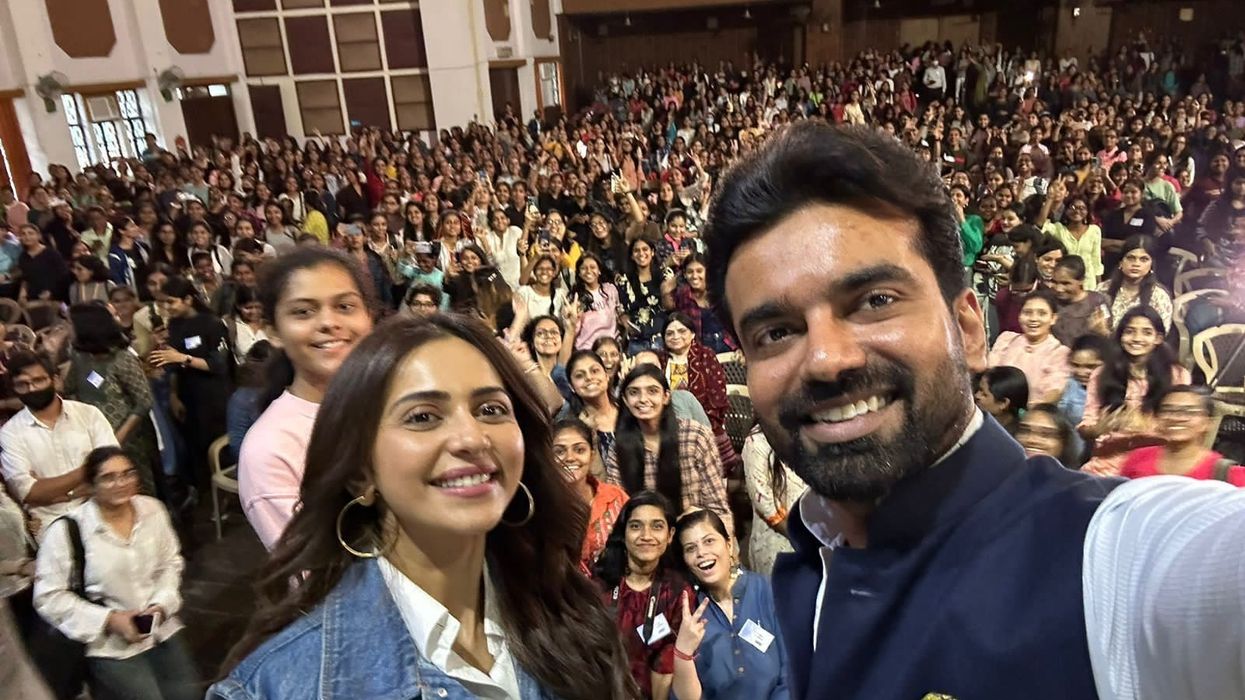The crowd of 1500 + girls with palpable excitement filled the auditorium of Daulat Ram College, the University of Delhi as they witnessed the warm entry of renowned personalities like Abhishek Singh, Actor, and IAS, Rakul Preet, Actress. The topic of the talk show grabbed even more attention as in this technical and constantly socializing world the cases of getting sexually abused over something as ubiquitous as calls and texts are shamefully increasing. A similar session was also conducted at Modern School in Mandi House.
The talk was a part of the #NoShameMovement, organised by the women's development cell, at Daulat Ram College. This movement is a step towards addressing the vulnerabilities that young girls face due to “non-consensual image sharing” also known as “revenge porn”. It is seen that girls generally don’t approach the police because of the fear of victim blaming and shaming. Their young age makes them even more vulnerable. In such a helpless situation they become more liable to be exploited, even to the extent that they are coerced to commit crimes. Therefore, it becomes very important that these young victims should be provided appropriate legal guidance, institutional support from the state authorities, and psychological counselling.
In his address, Abhishek Singh, IAS and Actor, “The ‘No Shame Movement’ is a unique and integral step from our end for further fortifying the safety of women all over. This campaign will be whole-heartedly supported by the government, public figures, psychologists, parents, lawyers, media, etc. Our NGO will also have committed helplines where students can reach out to us for support. We will also initiate a chat group where all those who are either suffering from some disturbance of concerning nature or those who want to support the cause, can come together and discuss. I would also like to extend a vote of thanks to Rakul Preet who has come forward to support this initiative and will further help it to reach a wider audience.”
Rakul Preet shared her views and said, “I simply want to say, how do you not feel ashamed of what's happening? The first thing that runs through my mind is what will society think, what will my parents think, they'll think I'm wrong. This thought needs to be eradicated from the mind completely. All of us need to understand not to associate guilt with it. There is no social stigma, there is no shame, so once you will be able to take that shame out of your head is when you'll be able to take the right decision. I know it's difficult but it is the right thing to do.”
The session then was open to questions and answers from the audience in which they actively participated while raising the most serious questions related to the girl child, and women's education.
Amid the hype of having such famous personalities in the auditorium, the conversation reflected the concern related to the issue and how society is continuously getting more and more aware of the same as shame and blame should have no place in our body, mind, or spirit.




